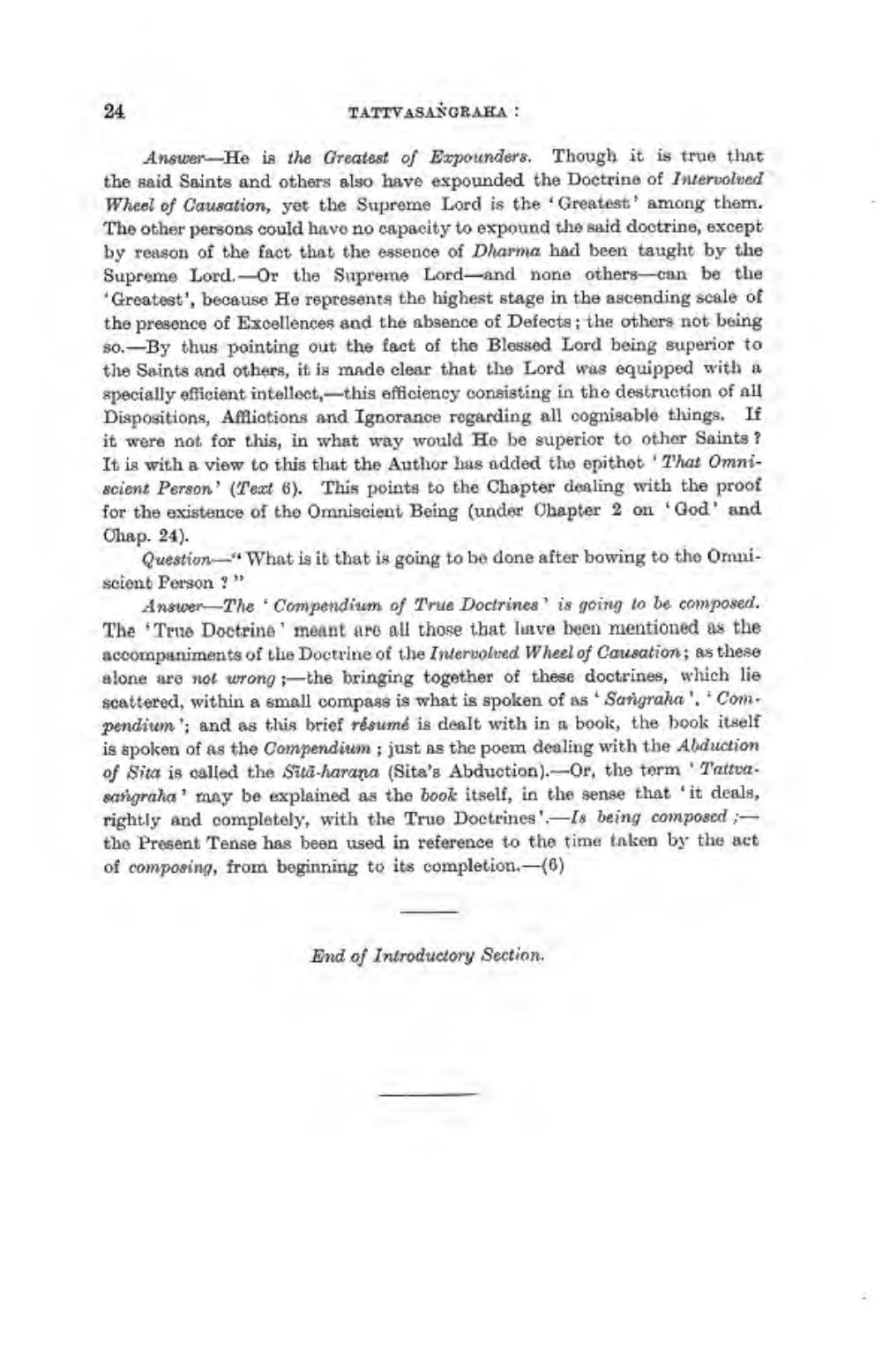________________
24
TATTVASANGRAKA :
Answer-He is the Greatest of Expounders. Though it is true that the said Saints and others also have expounded the Doctrine of Intervolved Wheel of Causation, yet the Supreme Lord is the Greatest among them. The other persons could havo no capacity to expound the said dootrine, except by reason of the fact that the essence of Dharma had been taught by the Supreme Lord-Or the Supreme Lord-and none others-can be the "Greatest', because He represents the highest stage in the ascending scale of the presence of Excellences and the absence of Defects; the others not being 50.-By thus pointing out the fact of the Blessed Lord being superior to the Saints and others, it is made clear that the Lord was equipped with a specially efficient intellect,--this efficiency consisting in the destruction of all Dispositions, Amictions and Ignorance regarding all cognisable things. If it were not for this, in what way would He be superior to other Saints ? It is with a view to this that the Author has added the epithet 'That Omniscient Person' (Text 6). This points to the Chapter dealing with the proof for the existence of the Omniscient Being (under Chapter 2 on God' and Chap. 24).
Question-"What is it that is going to be done after bowing to the Omniscient Person :
Answer-The Compendium of True Doctrines' is going to be composed. The True Doctrine' meant are all those that lave been mentioned as the accompaniments of the Doctrine of the Interuolued Wheel of Causation; as these alone are not wrong :--the bringing together of these doctrines, which lie scattered, within a small compass is what is spoken of as Sangraha Com. penditem'; and as this brief résumé is dealt with in a book, the book itself is spoken of as the Compendium ; just as the poem dealing with the Alduction of Sita is called the Sita-harana (Sita's Abduction). Or, the term 'Tattva. sangraha' may be explained as the book itself, in the sense that it deals, rightly and completely, with the True Doctrines', -I8 being composed - the Present Tense has been used in reference to the time taken by the act of composing, from beginning to its completion.—(6)
End of Introductory Section.




